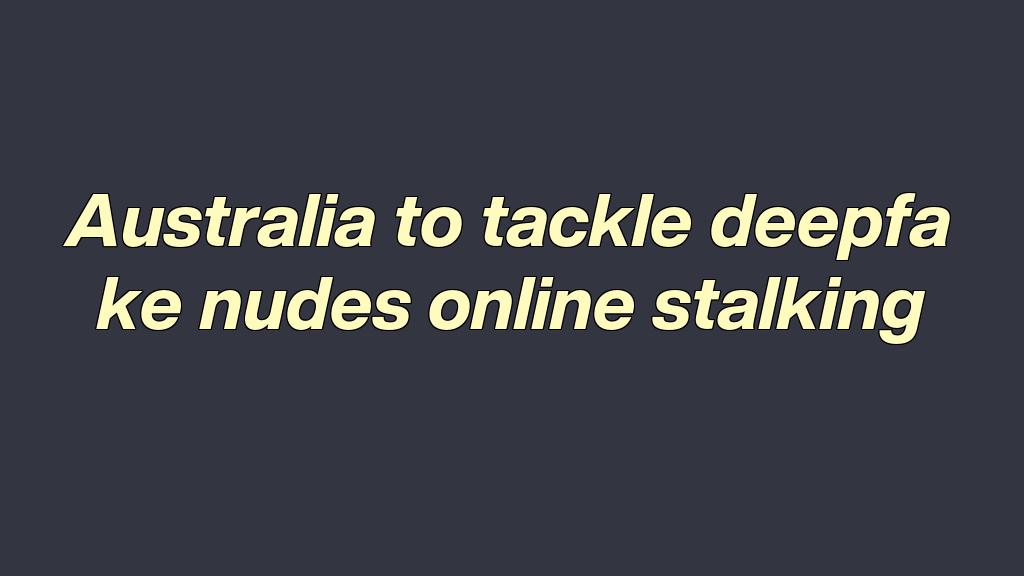SYDNEY — Australia said Tuesday it will oblige tech giants to prevent online tools from being used to create deepfake nudes or stalk people without detection.
“Nudify” apps — AI tools that digitally strip off clothing or generate sexualized imagery — have exploded online, sparking warnings that so-called sextortion scams targeting children are surging., This news data comes from:http://qcf-kvl-cjpl-owrj.ycyzqzxyh.com
Australia to tackle deepfake nudes, online stalking
The government said it would work with industry on developing new legislation against AI-driven “nudification” and online stalking, without providing a timeline.
“There is no place for apps and technologies that are used solely to abuse, humiliate and harm people, especially our children,” Communications Minister Anika Wells said.
The government would use “every lever” to restrict access to stalking apps, placing the onus on tech companies to block them, Wells said.
“While this move won’t eliminate the problem of abusive technology in one fell swoop, alongside existing laws and our world-leading online safety reforms, it will make a real difference in protecting Australians,” she added.

The proliferation of AI tools has led to new forms of abuse impacting children, including pornography scandals at universities and schools worldwide, where teenagers create sexualized images of their own classmates.
A recent Save the Children survey found that one in five young people in Spain have been victims of deepfake nudes, with those images shared online without their consent.
Australia has been at the forefront of global efforts to curb internet harm, especially that targeted at children.
The country passed landmark laws in November restricting under-16s from social media — one of the world’s toughest crackdowns on popular sites such as Facebook, Instagram, YouTube, and X.
Social media giants — which face fines of up to AU.5 million ( million) if they fail to comply with the teen ban — have described the laws as “vague,” “problematic” and “rushed.”
It is unclear how people will verify their ages in order to sign up for social media.
The law will come into force by the end of this year.
An independent study ordered by the government found this week that age checking can be done “privately, efficiently and effectively.”
Age assurance is possible through a range of technologies, but “no single solution fits all contexts,” the study’s final report said.
- North Korean leader inspects new missile factory ahead of visit to China
- Majority of Filipinos unaware of vote buying in 2025 elections, OCTA survey shows
- Eala kicks off US Open campaign, aims for breakthrough win in New York
- Palace suspends govt work, classes in several areas due to bad weather
- Vico encourages citizens on Heroes’ Day to be brave
- Co out of country for medical reasons
- No winner in lotto draws for Aug 23
- Taiwan: China illegally deploying oil rigs in our waters
- AI helps UK woman rediscover lost voice after 25 years
- Heavy rain falls in parts of Southeast Asia after tropical storm blows into Vietnam